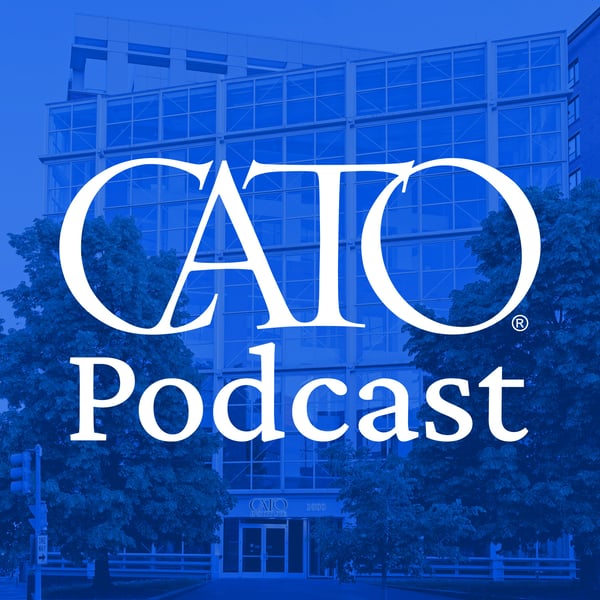Best of Cato Daily Podcast: Is Strip Searching Students in a School Covered by Qualified Immunity?
Cato Podcast
Cato Institute
4.6 • 949 Ratings
🗓️ 15 May 2025
⏱️ 11 minutes
🧾️ Download transcript
Summary
Caleb O. Brown hosted the Cato Daily Podcast for nearly 18 years, producing well over 4000 episodes. He has gone on to head Kentucky’s Bluegrass Institute. This is one among the best episodes produced in his tenure, selected by the host and listeners.
Discussions of qualified immunity focus almost exclusively on police. What about when public school administrators clearly violate the rights of students? Should parents of those children be able to hold administrators accountable in civil court? Chris Kemmitt is the deputy director of the NAACP Legal Defense Fund.
Hosted on Acast. See acast.com/privacy for more information.
Transcript
Click on a timestamp to play from that location
| 0:00.0 | This is longtime Cato Daily podcast host, Caleb Brown. |
| 0:02.8 | I've moved on to head the Kentucky's Bluegrass Institute, |
| 0:06.0 | but I wanted to leave listeners with some favorite episodes over the last nearly 18 years of my hosting tenure. |
| 0:13.3 | I tried to pick episodes that are relevant to our current moment. |
| 0:16.7 | Thank you for listening. |
| 0:25.2 | This is the Cato Daily podcast for Thursday, February 17th, 2022. |
| 0:26.2 | I'm Caleb Brown. |
| 0:39.5 | For opponents of qualified immunity, that's the Supreme Court invented doctrine that lets many public officials off the hook for violations of Americans' rights, the focus has long been on police and how police engage with the rest of us. But what about other public officials, like school administrators? Chris Kemet is with |
| 0:45.1 | the NAACP Legal Defense Fund. That group is one around in federal court against administrators |
| 0:50.7 | who stripped searched a student twice for no clear reason. |
| 0:55.2 | We spoke last week. |
| 0:56.9 | With respect to constitutional rights, what do we broadly expect that the public sector owes to the private sector? |
| 1:06.2 | I mean, I think that what we expect is that the public sector adheres to the Constitution, that the |
| 1:14.1 | Constitution means what it says, and that public sector employees are obligated by it, are |
| 1:20.6 | bound by it, and when they violate the rights of other people as set out in the Constitution, |
| 1:26.2 | there has to be some sort of consequence |
| 1:28.6 | for that. Okay. So in the context of police, police who violate Americans' rights are rarely |
| 1:35.5 | ever charged with crimes. And in this case that you're dealing with, what do teachers and school administrators and public schools in general, you know, how does that differ from when we talk about in the context of police violating rights? |
| 1:55.6 | You know, I think that when people think about the Fourth Amendment and they think about invasive searches and seizures or even qualified immunity. Like the police are quite fairly the first, the first kind of |
| 2:06.0 | group of folks that spring to mind because they are the most likely party to be involved. |
| 2:11.4 | But school officials are bound by, you know, are bound by the Fourth Amendment just like |
| 2:16.8 | police officers, just like police officers are. |
... |
Please login to see the full transcript.
Disclaimer: The podcast and artwork embedded on this page are from Cato Institute, and are the property of its owner and not affiliated with or endorsed by Tapesearch.
Generated transcripts are the property of Cato Institute and are distributed freely under the Fair Use doctrine. Transcripts generated by Tapesearch are not guaranteed to be accurate.
Copyright © Tapesearch 2025.

